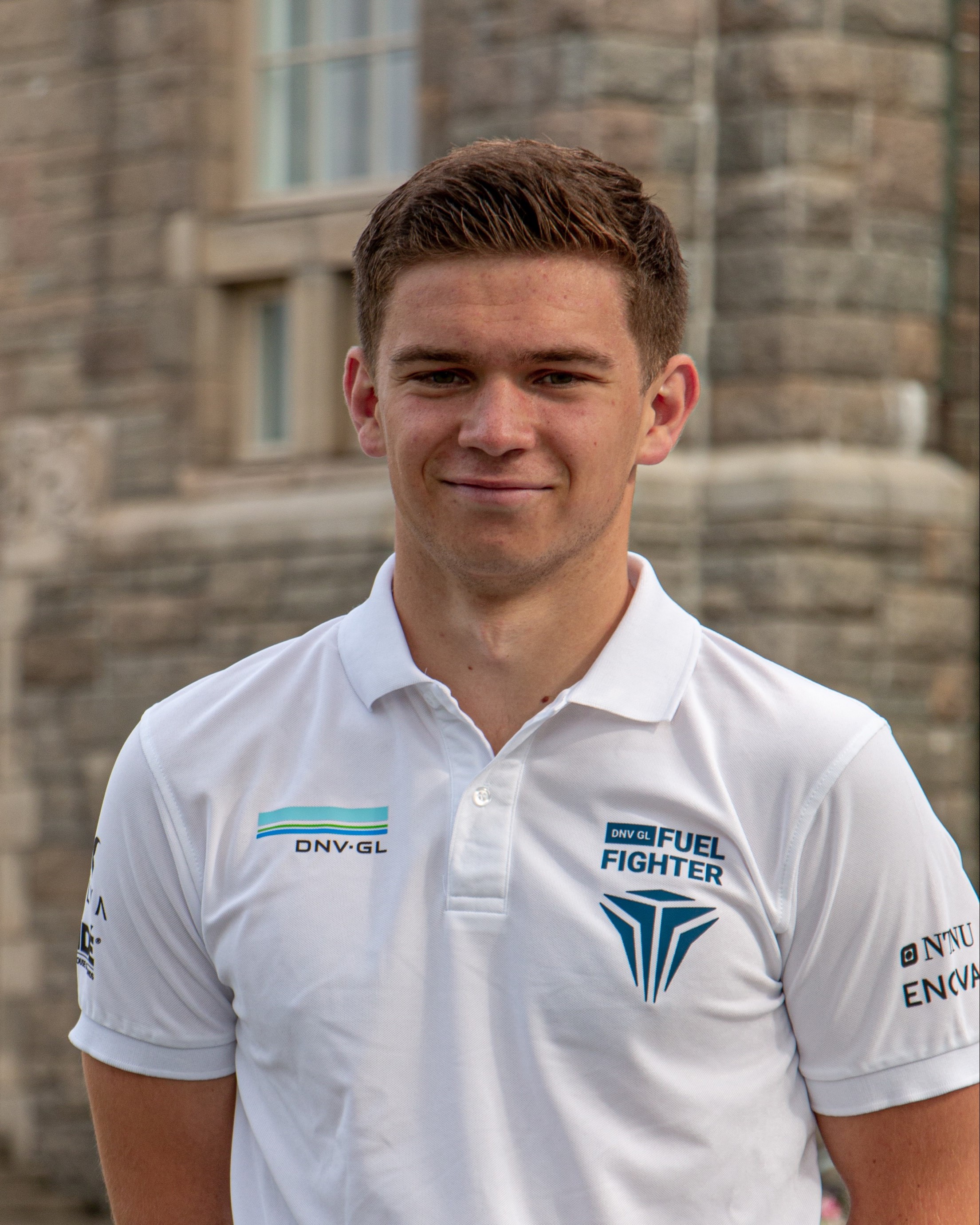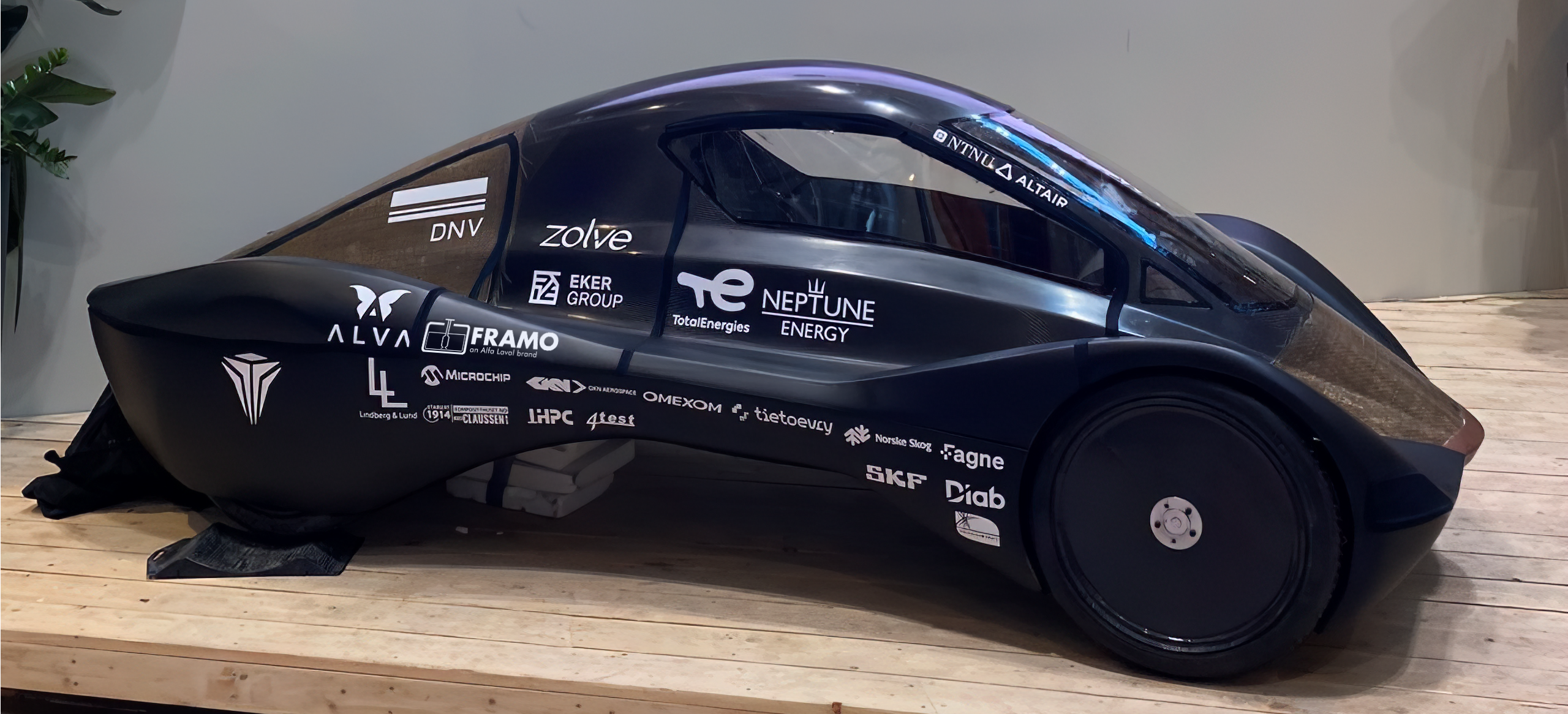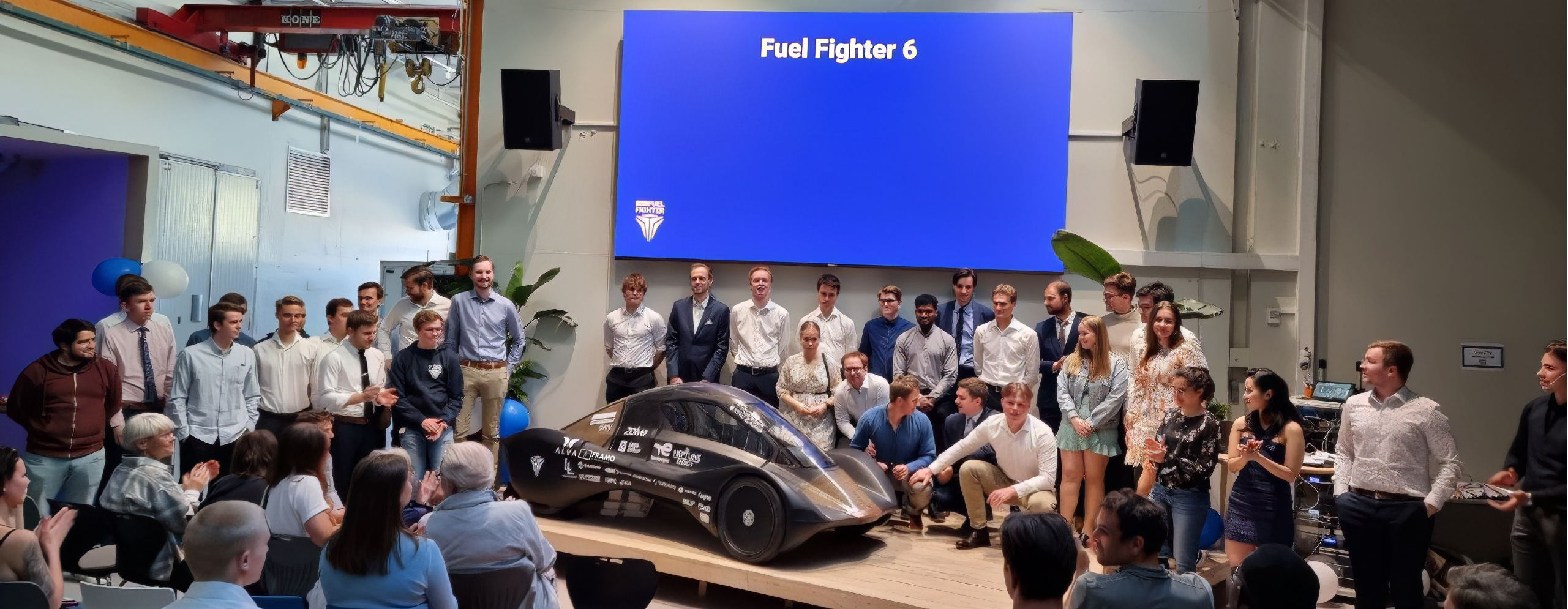They are young, creative, and increasingly knowledgeable. This week the team has once again been tested in the Shell Eco Marathon 2022. Meet the fuel fighters at NTNU!
After three years, the DNV Fuel Fighter team was back to compete in the Shell Eco Marathon.
This year, the team from NTNU took part in two competitions. Fuel Fighter 6 lined up at the starting line with car and driver in the Netherlands in June. A product of many thousand hours of work.
In their first autonomous competition ever, they pulled through with a strong third places in France this week.
The DNV Fuel Fighter team
DNV Fuel Fighter is a student organisation whose members spend a lot of their free time dedicated to creating cars with minimum energy consumption. Their main ambition is to do well in the Shell Eco marathon, competing against universities from all over Europe.
 |
| Tor Børve Rasmussen |
“The first time we took part was in 2008. We came second then and have been on the podium and won special prizes ever since, in one of the largest student competitions worldwide,” says Tor Børve Rasmussen.
20-year-old Rasmussen is working on his Master’s degree in cybernetics and robotics. In his spare time, he is the team leader for autonomics in Fuel Fighter and will soon be taking over as project manager for next year's car.
“In total, we are 57 students from around 20 different study programmes, all working together. This requires a broad spectre of expertise, from data and technical disciplines to finance and marketing,” says Tor Børve Rasmussen.
Weight a decisive factor
To win the Shell Eco marathon, you need to create a car that can cover the longest distance with minimal energy consumption. The competition takes place outdoors on racing tracks, even though the battery-powered cars only reach speeds of 20-30 km/hr.
The students in Trondheim entered this year with the "Fuel Fighter 6", a car built mainly of carbon fibre to keep the weight as low as 70 kg.
"It's essential to create low-weight cars, and we also need drivers who are not too heavy. Just under 70 kg is the ideal weight," says Tor Børve Rasmussen.
181 km per kilowatt hour
He is convinced that electric cars are the future. By improving efficiency, it will be possible to significantly increase range in comparison with current models, and he uses the car Fuel Fighter competed with in 2019 as a good example:
"It had a range of 181 km per kilowatt hour. This is 27 times the energy efficiency of a Tesla Model 3!"
30,000 hours of unpaid work
It's a pretty unusual hobby.
"We are carrying out pioneering work in areas where there are currently no solutions to challenges. This means that we have to obtain new knowledge and find creative solutions. Luckily, we get great input and advice from the professors at NTNU, who seem to enjoy helping us."
Before the start of the Shell Eco marathon, the cars passed a comprehensive inspection covering more than 100 items, including dimensions, equipment and safety.
Support from Framo
Framo is sponsoring Fuel Fighter and some of the funds from Framo have been spent on a powerful computer that is essential for the functioning of the autonomous system.
"We know that Framo supports voluntary activities. It was therefore a natural choice for us to ask for some support, and we are very happy that they said yes," says Tor Børve Rasmussen.
Good experience
Kristoffer Tallhaug Sydnes from Framo Innovation agrees that this is a smart investment:
"I wrote my Master's thesis for DNV Fuel Fighter in 2018/2019, and was at the same time part of the leader group for the student project. During that year, I was involved in both design and construction of the car. I was able to put theory into practice and developed a larger network at the university," he says.

Fuel Fighter
- NTNU's oldest technical student organisation, founded in 2007.
- Builds cars that have minimum energy consumption.
- Made up of 57 students from around 20 different study programmes.
- Fuel Fighter participates in the Shell Eco marathon, a global competition providing science students with the opportunity to put theory into practice by developing, building and testing ultra-energy-efficient vehicles.
